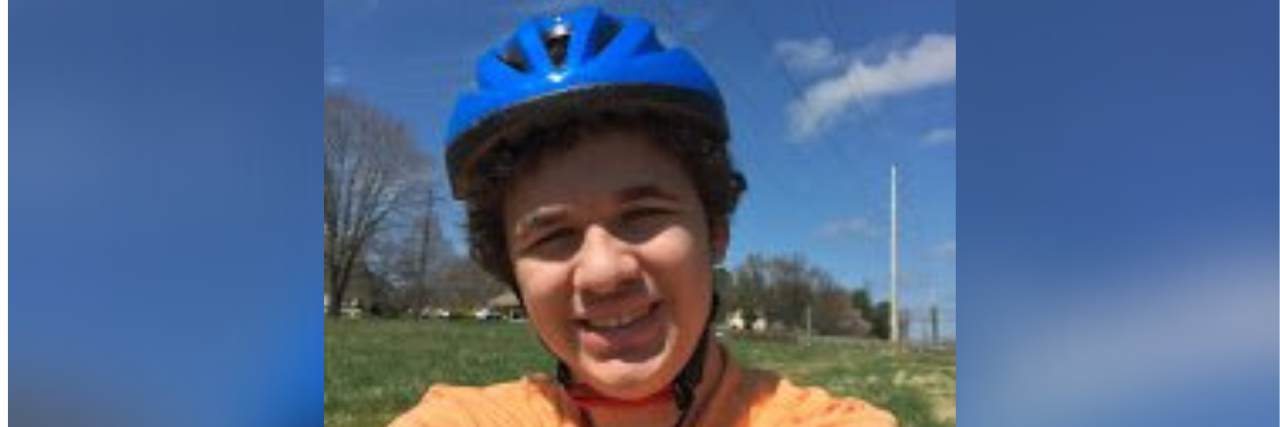How the COVID-19 Pandemic Showed Me a New Side of My Son With Disabilities
The COVID-19 pandemic is not something that anyone would want to happen. People are dying and sick, the economy is suffering, mental health conditions are on the rise, and we are separated from those we love and want to see. Yet, there are positives coming out of this shutdown. In fact, today I actually thought how calming it would be if we could schedule a similar break, yearly — without the disease, dying and negative effects, of course.
Many of the positives are obvious — family time, bored kids agreeing to chores without much fuss, neighbors meeting each other (from six feet away), and people helping those that cannot leave their homes. For me, watching my 17-year old son Bryce, who has diagnoses of autism spectrum disorder, executive functioning disorder, bipolar disorder and anxiety, this time at home has been enlightening and has shown me that my son is so much more capable than I thought.
While so many people are struggling right now, including most teenagers who are stuck at home, Bryce is doing great. He woke up this morning and got on Google Classroom without me even needing to tell him. He is eager to begin Zoom calls with his classmates. He misses his school, The Frost School, a full-time therapeutic school for students with autism and other disabilities, but he is coping and adjusting like everyone else, if not better.
Academically Bryce is well below grade level (even with his accommodations) and he struggles a lot with focus and organization. For example, even with support, he loses his work somewhere between school and home. I have no idea what happens to his lunchbox (I have bought at least five this year) and he leaves the house without a jacket most days because there are at least four left or lost at school or he is clueless about the weather.
Bryce also struggles more at nights, weekends and on vacations, because these times are unstructured; after all, he does deserve to be a typical teenager, sleeping late, playing video games and “chilling.”
All of this is what I see — the struggles, the lack of organization, not wanting to do anything but play video games, etc.
We prepared the best we could for this time at home. We created a schedule, complete with breaks, free time and plenty of flexibility. I found a service project he could do virtually — hosting a supplies drive for two local charities during the pandemic. He needs service hours to graduate and it would provide more structure in his day.
His school’s staff was incredible at providing the home school curriculum and support individualized for each student and their needs. They truly deserve huge bonuses!
Even with all of this preparation and support, given his challenges and what I believed about Bryce’s abilities, I thought I’d be doing most of this project myself. I also thought distance learning would be nearly impossible without his full IEP in place, his teachers, therapists, OT, speech etc.
I was completely wrong. I have been shocked by how well Bryce is doing!
He caught on to using Google Classroom immediately and he works independently on his schoolwork. He might not get the answers correct, but he tries. He does almost all of the service project himself, with only supervision and guidance by me. Plus, as an added bonus, by watching him work at home, on a computer, without distractions, I have thought of new accommodations that would help at school.
As I am writing this, he is on a bike ride by himself. He just texted me a selfie with a huge smile on his face and told me where he was and that he was going to keep going. I wrote back saying how much I loved the picture and reminded him not to get lost. I normally have to beg him to exercise at home.
I can’t fully explain why behaviorally and emotionally Bryce is thriving, but I have spoken to other parents of kids with disabilities as well. Maybe it is because there is a lot of parent attention. Maybe it’s that many kids with these types of disorders and illnesses are less social than typical teens, or maybe they are not as aware of or fearful about what is going on in the world. Whatever it is, we will take it.
Before this, I would worry constantly about my 17-year old nearing independence. Thanks to this forced “break,” I feel calmer and a lot of my worry about Bryce has subsided. Bryce may and will likely still struggle, but I know now that with the right help, guidance, and support system, he will be OK as an adult.
I wish this happened for a reason other than a national emergency, but I am grateful for the anxiety that has been removed from my life. I hope other parents around the country and the world are having the same experience as me.
And by the way, Bryce just walked in the door, and the first thing he did was wash his hands without being told. Then he told me how awesome his bike ride was.
For more on the coronavirus, check out the following stories from our community:
- Please Wash Your Hands Year-Round — Not ‘Just’ Because of the Coronavirus
- Creative Activities to Try With Your Kids While We’re Isolated at Home
- What to Do When Your Child on the Autism Spectrum’s Routine Is Disrupted by the Coronavirus
- One Reason the COVID-19 Pandemic Might Be Extra Challenging for Autistic Adults

